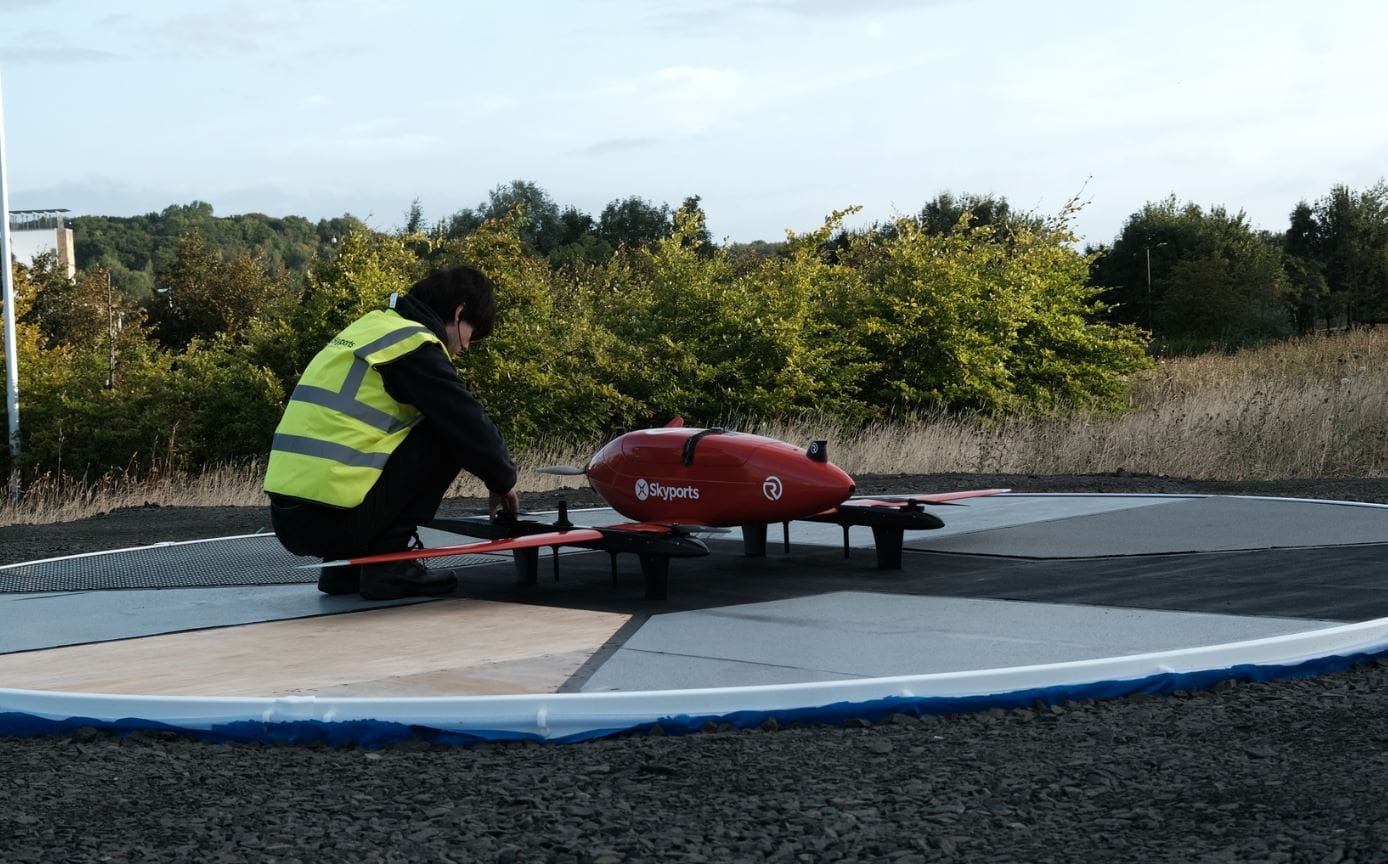August 22, 2024
NHS laboratory specimens delivered by drone for first time by Project CAELUS

In a ground-breaking [MM1] first for Scotland, laboratory specimens have been flown from one NHS board to another – by drone.
This step forward by the Project CAELUS initiative, led by AGS Airports in partnership with NHS Scotland, took place during a three-week flight trial between NHS Lothian and NHS Borders.
Live flying took place between the Edinburgh BioQuarter next to the Royal Infirmary of Edinburgh and Borders General Hospital in Melrose.
Invited guests were involved a special event today (21st August) showcasing the live flight trial with presentations around the work conducted by Project CAELUS.
Currently, laboratory samples which inform urgent clinical decision-making are transported by road and can take up to five hours between NHS Borders and NHS Lothian.
Innovation activity being conducted by Project CAELUS could see this delivery take 35 minutes, enhancing the transport provision, particularly for rural areas.
Project CALEUS is working with 16 consortium partners to deliver what will be the first national drone network that can transport essential medicines, bloods and other medical supplies throughout Scotland including to remote communities.
Fiona Smith, Project Director for Project CAELUS said: “Our consortium has been working extremely hard to get to this stage and we are delighted we have been able to test this important use case for the NHS.
“Transporting laboratory specimens by drone could speed up the clinical decision making allowing for same day diagnosis and treatment.
“It is also one of the first times in the UK that there has been a demonstration of beyond the visual line of sight medical drone operations transiting between controlled and uncontrolled airspace.
“This is an important milestone for our project and we now look forward to testing more potential use cases by drone across Scotland in the coming months.”
Hazel Dempsey is the CAELUS NHS Scotland programme lead: “Our aim, from an NHS perspective, is to explore opportunities where drone technology could benefit patients and NHS services in urban, remote, rural and island landscapes. The NHS is reliant on van logistics that have provided valuable service for decades, however these can take time, travelling hundreds of road miles each day. In some parts of Scotland, patients who live in remote and rural locations are dependent on ferry or airline availability.
“This project will enable the NHS to consider if drone technology is viable and able to contribute to improving the health and wellbeing of our population. This project will position the United Kingdom and NHS Scotland as a leader in healthcare and aviation industries.”
Liam Day, Head of Projects, Skyports Drone Services, said: “These medical flight trials are representative of the huge impact that drone operations can bring to critical public services. Our goal is to enable regular medical drone deliveries on a permanent basis across Scotland and our other markets so that we can unlock the benefits of drone logistics for more communities and organisations. This is a great milestone and a strong launch point.”
In the latest live flight trials, tests were also carried out on how NHS staff in future would engage with the drone both physically and digitally.
The Scottish Ambulance Service also carried out a simulation study in August to better understand the feasibility of delivering an Automated External Defibrillators (AEDs) via drone technology.not

